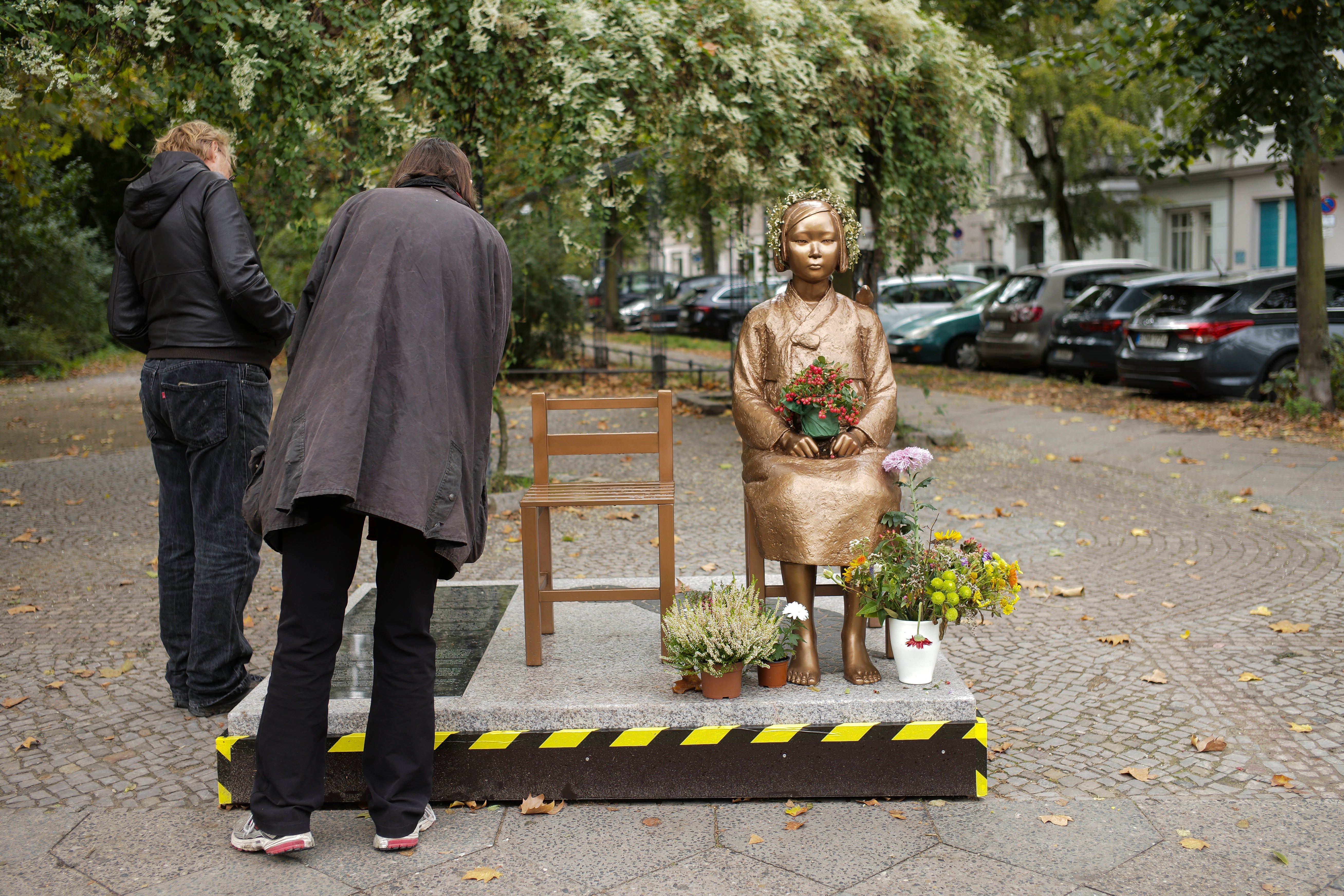Korean group must remove Berlin tribute to "comfort women"
A Berlin district has ordered a local Korean group to remove a statue commemorating women used as sex slaves by Japan during World War II, saying Friday it goes beyond what had been approved

Your support helps us to tell the story
From reproductive rights to climate change to Big Tech, The Independent is on the ground when the story is developing. Whether it's investigating the financials of Elon Musk's pro-Trump PAC or producing our latest documentary, 'The A Word', which shines a light on the American women fighting for reproductive rights, we know how important it is to parse out the facts from the messaging.
At such a critical moment in US history, we need reporters on the ground. Your donation allows us to keep sending journalists to speak to both sides of the story.
The Independent is trusted by Americans across the entire political spectrum. And unlike many other quality news outlets, we choose not to lock Americans out of our reporting and analysis with paywalls. We believe quality journalism should be available to everyone, paid for by those who can afford it.
Your support makes all the difference.A Berlin district has ordered a local Korean group to remove a statue commemorating women used as sex slaves by Japan during World War II, saying Friday it goes beyond what had been approved.
The issue of sex slaves, euphemistically called “comfort women ” has been a major source of friction between South Korea and Japan, and the district's decision came after Japan expressed irritation about the statue depicting a woman sitting next to an empty chair.
Stephan von Dassel, mayor of the central Mitte district, said permission had been given for the Korean organization to display a “peace statue” for one year, as a broad “statement against sexualized violence against women in armed conflicts.”
Instead, he said, the statue unveiled in late September “exclusively addresses the behavior of the Japanese army in World War II.”
“This has led to irritation in Japan on a national and local level and also in Berlin,” he said in a statement.
Historians say tens of thousands of Korean women were lured or forced into sexual slavery at Japanese military-run brothels when the Korean Peninsula was under Japanese colonial rule in 1910-45.
The Korean association has until Oct. 14 to remove the statue.